Science & Technology
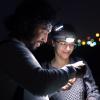 Inspired by the natural world, Kaushik Jayaram's research group aims to develop robotic devices that benefit and enhance human capabilities in the areas of search and rescue, inspection and maintenance, personal assistance and environmental monitoring.
Inspired by the natural world, Kaushik Jayaram's research group aims to develop robotic devices that benefit and enhance human capabilities in the areas of search and rescue, inspection and maintenance, personal assistance and environmental monitoring.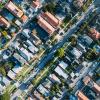 Researchers at CU Boulder are working with colleagues in Ireland to help policymakers and other stakeholders reduce residential energy consumption and the related greenhouse gas emissions that come from it.
Researchers at CU Boulder are working with colleagues in Ireland to help policymakers and other stakeholders reduce residential energy consumption and the related greenhouse gas emissions that come from it.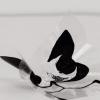 Researchers have created butterflies that flap their wings, flower petals that wiggle with the touch of a button and self-folding origami drawing on new advances in soft robotics.
Researchers have created butterflies that flap their wings, flower petals that wiggle with the touch of a button and self-folding origami drawing on new advances in soft robotics.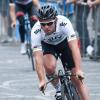 A new CU Boulder study shows that rising up out of the saddle and gently swaying the bike side-to-side, known in French as "en danseuse," can significantly boost performance.
A new CU Boulder study shows that rising up out of the saddle and gently swaying the bike side-to-side, known in French as "en danseuse," can significantly boost performance.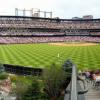 In 1998, the last time Major League Baseball's All-Star Game was held in Colorado, teams scored a record 21 runs. Engineer Peter Hamlington breaks down why we can expect balls to fly faster and farther at this year's All-Star Game at Coors Field.
In 1998, the last time Major League Baseball's All-Star Game was held in Colorado, teams scored a record 21 runs. Engineer Peter Hamlington breaks down why we can expect balls to fly faster and farther at this year's All-Star Game at Coors Field.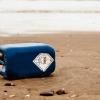 CU Boulder researchers have discovered that minuscule, self-propelled particles called “nanoswimmers” can escape from mazes as much as 20 times faster than other passive particles, paving the way for their use in everything from industrial clean-ups to medication delivery.
CU Boulder researchers have discovered that minuscule, self-propelled particles called “nanoswimmers” can escape from mazes as much as 20 times faster than other passive particles, paving the way for their use in everything from industrial clean-ups to medication delivery.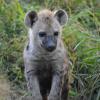 New research finds that the same parasite found in house cats (and often in their guardians) prompts hyena cubs in the wild to act dangerously bold near lions, often resulting in their death.
New research finds that the same parasite found in house cats (and often in their guardians) prompts hyena cubs in the wild to act dangerously bold near lions, often resulting in their death. "Hotspots," or tiny defects in the components that make up your phone and many other devices, can cause electronics to break down. Engineers are using machine learning techniques to predict ahead of time where they might pop up.
"Hotspots," or tiny defects in the components that make up your phone and many other devices, can cause electronics to break down. Engineers are using machine learning techniques to predict ahead of time where they might pop up.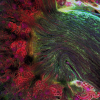 A new lab at CU Boulder is exploring how the extracellular matrix—a network of proteins that surrounds cells and provides structural and mechanical cues in the body—specifically impacts kidney growth, development and function.
A new lab at CU Boulder is exploring how the extracellular matrix—a network of proteins that surrounds cells and provides structural and mechanical cues in the body—specifically impacts kidney growth, development and function.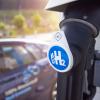 Widespread adoption of hydrogen-powered vehicles requires fuel cells that can convert hydrogen and oxygen safely into water—a serious implementation problem. Researchers at CU Boulder are addressing one aspect of that roadblock.
Widespread adoption of hydrogen-powered vehicles requires fuel cells that can convert hydrogen and oxygen safely into water—a serious implementation problem. Researchers at CU Boulder are addressing one aspect of that roadblock.


